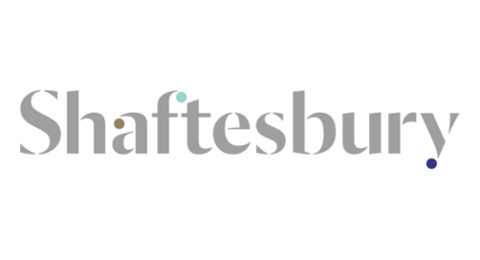M J Mapp’s Collaborative Recycling Programme in Chinatown
11 January 2018M J Mapp’s Collaborative Recycling Programme in Chinatown
11 January 2018A collaborative approach to waste management in the Chinatown portfolio that M J Mapp manages for Shaftesbury has delivered both environmental and social benefits. The introduction of recycling facilities alongside a targeted occupier engagement programme has resulted in improved behavioural change, reducing incidents of fly-tipping and improving conditions for people using the service areas. In turn, this has freed up more of the cleaning team’s time to focus on public areas for visitors. M J Mapp is now exploring opportunities to collaborate with Chinatown occupiers on other win-win initiatives.
Key Facts
- 32 OCCUPIERS RECYCLING MIXED WASTE
- IMPROVED CONDITIONS IN SERVICE AREAS
- POSITIVE OCCUPIER ENGAGEMENT
Situation
A specialist in property and asset management, M J Mapp has embedded sustainability principles into its risk management framework and identifies opportunities to improve the sustainability performance of the properties it manages.
M J Mapp manages Chinatown in London’s West End, on behalf of Shaftesbury, which is also committed to sustainability. Chinatown’s restaurants attract many visitors and have long trading hours. The area has always presented issues around waste management, due to the types and volumes of waste, the limited space for storage, and the number and type of restaurant operators, with different languages spoken.
M J Mapp approached Shaftesbury about a more collaborative approach to waste management in Chinatown, with the aim of:
- Increasing levels of recycling.
- Improving amenity conditions in the service areas, including pest control.
- Engaging with occupiers in a new and positive way, strengthening relationships.
Shaftesbury fully supported the initiative, which launched in April 2016, due to its potential to demonstrate their sustainability ambitions in action.
Actions
M J Mapp engaged with Veolia, the local waste services provider collecting on behalf of Westminster City Council. Veolia was keen to support a new waste management programme in China Town, which also aligned with its aim to increase recycling. Veolia agreed to replace four of the ten general waste bins in one of the main service areas with mixed recycling bins, all labelled in both English and Cantonese. Prior to this, there were no recycling facilities.
M J Mapp’s team of ten people working across Shaftesbury’s Chinatown and Soho portfolio engaged with the 14 restaurant operators using this service area. An M J Mapp Facilities Manager who speaks Cantonese and Mandarin was involved in occupier meetings to overcome language barriers where needed.
During the four-week trial, the Facilities Manager monitored the bins daily and Veolia gave feedback to the team on how well the bins were being used, that is, whether non-recyclables were being put into the recycling bins. Veolia feedback showed that occupiers were correctly segregating waste.
Following the success of this trial, which achieved all its aims, the initiative was extended to the second service yard, used by 18 occupiers. All 32 occupiers across the two service areas continue to segregate dry, mixed recyclables. Leases for new occupiers have also been updated to require their participation in the scheme.
M J Mapp, Shaftesbury, Veolia and Westminster City Council are now exploring opportunities to replicate the initiative elsewhere. In addition, M J Mapp is building on this successful collaboration to explore other opportunities with Chinatown occupiers, such as the potential to install devices in restaurants to capture grease before it enters London’s drainage system.
Financials
- Recycling bins provided free of charge by Veolia.
- No changes in the waste services fee.
- Freeing up local resource to maintain public areas, by saving time on cleaning and pest control in service areas.
Benefits
Ongoing monitoring of the service areas by the facilities team shows that the initiative has resulted in:
- Reduced incidents of fly-tipping.
- Reduced frequency of overflowing bins.
- Fewer oil spillages.
- Significantly fewer pest control calls.
Additional benefits include:
- Increased recycling. Quantitative data is not available from Veolia, as Chinatown is on a general waste collection round. The M J Mapp team continues to raise this with Veolia and the City of Westminster.
- Positive engagement with occupiers, opening opportunities for further collaboration.
- Improved conditions for health and safety in service areas.
- Supporting the sustainability commitments of M J Mapp, Shaftesbury and Veolia, as well as occupiers.
Challenges and Achievements
ENGAGEMENT
How to secure occupier buy-in for sustainability initiatives?
Prior to the collaborative waste management initiative, occupier engagement by the facilities team tended to be functional. The engagement routines existed, but the focus tended to be on practicalities around leases and licenses for alterations. There was also a perception that local business owners preferred to be left alone. However, M J Mapp was confident that, with the right level of engagement, the waste management initiative would not only be successful, but would lay the groundwork for further collaboration with occupiers. The facilities team spoke with all the occupiers individually to get their buy-in. They focused on the potential benefits for occupiers, including a more pleasant service area at the back of their restaurants, with reduced incidents of fly-tipping, fewer overflowing bins and less issues around pest control. They emphasised that this would be achieved without any increase in waste management fees. They launched a four-week trial to prove the potential of the scheme. Although the scheme is fairly bespoke, it is replicable for areas where there is an effective engagement programme and occupiers share a service area.
LONG-TERM
How to maintain performance on waste management?
The sustained improvement of conditions in the service area, without any increase in the total number of bins or frequency of collections, is the result of behavioural changes. Following the initial engagement and monitoring, people immediately started treating the area better and saw the benefits of this, with everything tidy, segregated and well signed. Whilst there is the potential for fines to penalise occupiers that contaminate waste, these have not needed to be used. If one restaurant did mismanage waste now, the facilities team believes that others would be quick to flag that it was not them. In addition, many of the restaurants are small, family firms with well-established teams, which reduces the risk of mismanagement by new staff unfamiliar with procedures. There is also clear signage in English and Cantonese. All 32 occupiers using the service areas have signed up to continue the scheme voluntarily and there is a new lease clause requiring participation for new occupiers.
FUTURE
How to further improve waste management in Chinatown?
The lack of quantitative waste data and absence of food waste recycling options in Chinatown are limiting factors for M J Mapp. Unfortunately, neither waste data nor food waste recycling are currently available through Veolia on the general waste collection round in Westminster and there are strict controls over bringing additional waste service providers into the area. The M J Mapp team continues to explore these and other waste management opportunities with Veolia and the City of Westminster.
*Please note that the information on this page was supplied by the BBP Member and the BBP assumes no responsibility or liability for any errors or omissions in the content


